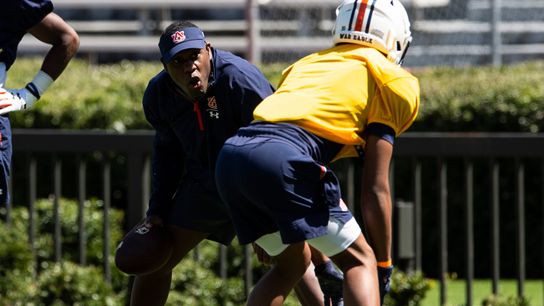Put it this way: your grandfather would have a hard time fitting into modern day college football practices. Long gone are the days coaches put players through a four-hour football practice just for the sake proving they can endure a four-hour practice. These days, it's about maximizing effort efficiently so as to give players as much rest and recovery time as possible.
For instance, a typical Vanderbilt practice runs shorter than your typical Disney movie. “The days of having three-hour practices with guys standing around just to be standing around — those are long gone,” head coach Derek Mason told the Tennessean. “Looking at the data, our guys are putting up workloads like they’re playing games in 74 minutes or in 83 minutes (the time of Saturday’s practice). It’s all about the work capacity.”
The Commodores have hooked GPS monitors into the shoulder pads of 30 players, which then track players' movements. The resulting data shows the coaching staff when players are giving maximum effort and when they aren't. This leads to less time standing around for no reason.
“Last year I felt like we had too much standing around,” offensive tackle Andrew Jelks said. “We weren’t getting enough done. But this year it’s bam, bam, bam, we’re all flying around. We are always running, playing, doing something. That’s why practices are shorter.”
Georgia isn't as far along in its GPS program, attaching devices to only a handful of players in an effort to provide a baseline for future practice planning.
"We're using them for the first time," Mark Richt told the Times Free Press. "What it's doing is giving us an idea about the volume of running — how much distance are these guys traveling and what speed are they traveling and how often do they hit at maximum speeds?
"You learn a lot about the volume of work that they're doing. We're still learning how to use them and how to use the data to help us, because we really don't have anything to compare it to."
The goal, Tennessee head coach Butch Jones said last fall, is to optimize everything else coaches do - to help their players peak on Saturday. "You build a portfolio of data on each player so over a period of time you can tell when they're wearing down, do they need an extra rest, do they need a day off, all those things," Tennessee coach Butch Jones said. "The most important thing is what you do throughout the week to get them ready to perform at their peak, at their optimal level, come game day."
